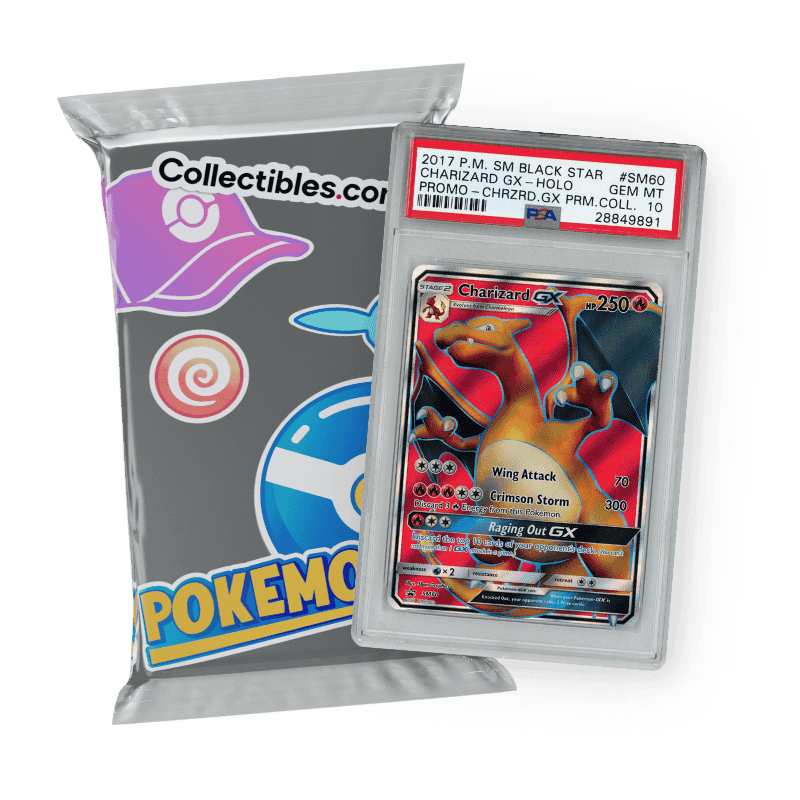
Law of Cards: California’s Autographed Memorabilia Law
On April 4, 2017, I spoke at the Industry Summit. My topic was legal issues in The Hobby, and I planned to start with the recent changes to California's autographed memorabilia statute §1739.7, then move to concerns with razzes and case-breaking, followed by updates on trademark and copyright law...and then field any questions the audience might have. Well, the hour long, very-interactive talk never proceeded past topic number one, and due to the sheer number of questions asked, I realized an article on this law might be necessary.
Legal aside: If you watch the podcast, you can see my face pale when I agreed to write on this topic. It's not that I didn’t want to write about it, it's just that writing an article on a statute this complex was daunting. But, the 3-hour-and-20-minute return flight from Las Vegas to St. Louis came in handy to crank this article out.
So, let's dive in.
While concerns about California's autographed memorabilia statute have only recently arisen, the statute is technically not new as it's more than 20 years old.
Legal aside: Where have you guys been? I wrote about the predecessor statute in 2011! And if you’ve seen me speak before about The Hobby, you likely heard me say something like, "This is my favorite statute ever!"
The original statute required dealers of signed sports memorabilia to furnish a certificate of authenticity ("CoA") to consumers at the time of sale. It also required dealers to display a disclosure regarding consumer rights. But, it was limited only to sports memorabilia.
As a plaintiff’s attorney, I liked this statute because injured consumers could seek actual damages AND a penalty in the amount of 10 times the actual damage AND court costs AND reasonable attorneys' fees AND interest AND expert witness fees AND additional damages for egregious conduct.
Legal aside: Statutes allowing for recoveries of all of these types of remedies are rare, and a 10x multiplier is unheard of.
Last year, the California autographed memorabilia statute became more mainstream because the legislature broadened it from sports memorabilia to any signed collectible sold for $5 or more. The California legislature also clarified the protections of the statute covered online sales too.
Legal translation: In other words, it also applies to online sellers of signed collectibles outside of California, if they sell collectibles to California consumers.
Other than these changes, the law is basically the same:
(g) Any consumer injured by the failure of a dealer to provide a certificate of authenticity containing the information required by this section, or by a dealer’s furnishing of a certificate of authenticity that is false, shall be entitled to recover, in addition to actual damages, a civil penalty in an amount equal to 10 times actual damages, plus court costs, reasonable attorney's fees, interest, and expert witness fees, if applicable, incurred by the consumer in the action. The court, in its discretion, may award additional damages based on the egregiousness of the dealer's conduct. The remedy specified in this section is in addition to, and not in lieu of, any other remedy that may be provided by law.
Legal translation: If a consumer buys a fake autograph or receives an inadequate certificate of authenticity, the dealer could be liable for that long, long list of damages recited above.
Why the recent expansion of the statute? Per the bill's author, there was widespread fraud in the autographed collectible market including an estimate that 94% of Beatles' autographs were forged and 76% of both Marilyn Monroe and Elvis Presley, so limiting the statute to just sports memorabilia left a lot of consumer fraud unaddressed. Also, and the more likely impetus was Mark Hamill taking to Twitter recently to tell fans which of their signed Mark Hamill collectibles were allegedly forged and which were genuine.
Legal aside: Star Wars and Disney are strong with the force. I mean strong with legislative power.
To fully understand this statute, we need to look at 1) who can sue and 2) who can be sued.
Who can sue under this statute?
Quick answer: Consumers.
The statute defines consumers as "any natural person who purchases a collectible from a dealer for personal, family, or household purposes." It also includes "prospective" purchasers meeting these criteria.
Because it focuses on consumers, that rules out businesses, resellers, etc..., which provides a good level of protection for dealers.
Legal aside: No chance your competitor is going to sue you on this one.
Who can be sued under this statute?
The statute narrows the potential defendants to dealers. So, if you aren’t a dealer…don’t worry.
Legal aside: But really, if you consistently sell autographed memorabilia into or from California and are not named eBay or Amazon, you are probably a dealer. Sorry!
As the statute provides, a dealer is any person 1) who is principally in the business of selling or offering for sale collectibles in or from California, exclusively or nonexclusively; OR 2) a person who by his or her occupation holds himself or herself out as having knowledge or skill peculiar to collectibles; OR 3) a person to whom that knowledge or skill may be attributed by his or her employment of an agent or other intermediary that by his or her occupation holds himself or herself out as having that knowledge or skill.
Legal translation: If you are involved in The Hobby or sell lots of sports memorabilia, you're likely a dealer.
The statue also classifies auctioneers as dealers as well as people engaged in a mail order, telephone order, online, or cable television business for the sale of collectibles.
Really, the list of who is not a dealer is easier to remember:
- licensed pawnbrokers (but only if they do not hold themselves out as having knowledge or skill peculiar to collectibles).
- the personality that signs the memorabilia, and
- providers/operators of online marketplaces only if those provider's operators are not principally in the business of selling collectibles and/or do not hold themselves out as having knowledge/skill peculiar to collectibles (legal aside: eBay and Amazon have better lobbyists than you).
A question of interest—are card companies dealers? I’d say yes. First, signed trading cards were expressly identified as "collectibles" in the original statute, which was then broadened to include all signed items that cost $5 or more. Second, trading card companies hold themselves out as having skill in the collectible area (legal aside: it is their business model, after all). Third, trading card companies market and sell autographed memorabilia in products as well as directly to consumers (e.g., Topps Now, Panini Instant, etc...). Fourth, in 1997, Upper Deck Authenticated filed suit under the predecessor statute…which further legitimizes the classification of trading card companies as dealers in my mind.
The Dreaded Certificate of Authenticity
The most draconian parts of the new statute (as was with the original) are the CoA requirements. Every time a dealer sells a collectible in or from California, a CoA must be provided. And, the CoA must (legal aside: if you are not a dealer, feel free to skip ahead…this is long and has sub parts):
1) be in writing,
2) be signed by the dealer (or his or her authorized agent),
3) specify the date of sale,
4) be in at least 10-point boldface type,
5) contain the dealer’s true legal name and street address,
6) describe the collectible and specify the name of the personality who autographed it,
7) specify either the purchase price and date of sale or be accompanied by a separate invoice setting forth that information,
8) contain an express warranty of the authenticity of the collectible which is conclusively presumed to be part of the bargain,
9) specify whether the collectible is a limited edition and, if so, specify A) how the collectible and edition are numbered and B) the size of the edition and the size of any prior or anticipated future edition (as described in greater detail in statute),
10) indicate whether the dealer is surety bonded or is otherwise insured to protect the consumer against errors and omissions of the dealer and, if bonded or insured, provide proof thereof,
11) indicate the last four digits of the dealer’s resale certificate number from the State Board of Equalization,
12) indicate whether the item was autographed in the presence of the dealer and specify the date and location of, and the name of a witness to, the autograph signing,
13) indicate whether the item was obtained or purchased from a third party (as described in greater detail in statute) and
14) include an identifying serial number that corresponds to an identifying number printed on the collectible item, if any (as described in greater detail in statute).
Legal aside: (pant pant) I’m sweating from writing all of that, and to make this article less boring I left out some requirements. Because of that, if you draft a CoA from this checklist, you’re likely missing something.
Legal translation of legal aside: If you rely on this article and only this article to draft a CoA, it’s likely deficient, so run it by a lawyer before providing it to your customers.
To make the law more onerous, the dealer is required to retain a copy of the CoA for no less than seven years. And you're supposed to have a sign in your store apprising consumers of their rights. And if you are online, you're supposed to have similar language on your site and in your advertisements for the sale of autographed memorabilia.
You may have also picked up from the CoA requirements that the person from whom the dealer received the autographed collectible must also be identified…including their address. So, no more anonymous submissions of autographed memorabilia.
Legal translation: California requires you by law to name names!
Is the world going to end?
As others have commented, this statute is so broad, it technically covers paintings, signed books…anything with an autograph that costs more than $5 falls into it. But, is it the end of the world for autographed collectibles into or from California? Unlikely. First, hobby shops, this statute applied to you already, and you survived the last 20 years likely without being sued. From my research, I can only find three reported decisions on this statute during that time frame.
Second, most consumers don’t seek expert opinions as to whether they purchased an "authentic" item. That costs money, and, face it, most consumers don’t want to know if the item they bought is fraudulent. Because of this, if consumers bought an already "authenticated" item, they are unlikely to seek a second opinion. They’d rather spend extra money framing their item.
Third, to bring a lawsuit, the consumer must be damaged by the sale...and this is a big limitation on who can bring suit.
Legal aside: Story time! Everyone gather around!
Awhile back I looked at whether Panini America violated the statute. You see, in its 2010 Elite Extra Edition, it issued autographs of Jordan Swagerty, a pitching prospect for the Cardinals. Well, those autographs weren’t his, they were…Magic Johnson's!
Collectors’ aside: Sticker autos are not only ugly, they can lead to problems for the manufacturers!
Now, I didn’t bring a suit on this because the statute requires damage to the consumer. Here, Jordan Swagerty is not a household name. Magic Johnson is. With this mix up then, what was likely a lower-dollar value Swagerty auto became an increased-in-value Magic Johnson auto, and an error card to boot. That means no damages to the consumer…which means no viable lawsuit.
Legal aside: I didn’t bring suit, BUT, since I collect interesting error cards, I did add four of these to my collection.
Future under the statute
A lot of hobby shops and internet sellers are concerned about this statute. If you are concerned, what can you do?
The easiest (and most unrealistic) way to avoid the statute: don't sell autographed collectibles into or from California. I mean, it's only the largest market in the United States...I'm sure you can have a viable business model by avoiding it. Not.
If, however, you'd like to stay in business and are a dealer (or think you might be a dealer), to avoid liability you will need to provide a CoA for each sale. And a 10x damages multiplier PLUS attorneys fees PLUS court costs PLUS…PLUS…PLUS...well, you get the idea…that should be incentive enough to comply.
Finally, if you don't like the statute, there is something you can do: talk to your representative about having the law changed. Issuing a CoA that may very well cost more in time/money than the $5 item you sold seems excessive, so perhaps the statute should be amended to focus on memorabilia of higher dollar values.
But until then, definitely try and comply. Otherwise, you are placing yourself at risk.
The information provided in Paul Lesko's “Law of Cards" column is not intended to be legal advice, but merely conveys general information related to legal issues commonly encountered in the sports memorabilia industry. This information is not intended to create any legal relationship between Paul Lesko and the reader. Neither the transmission nor receipt of these website materials will create an attorney-client relationship between the author and the readers.
The views expressed in the “Law of Cards" column are solely those of the author. You should not act or rely on any information in the “Law of Cards" column without seeking the advice of an attorney. The determination of whether you need legal services and your choice of a lawyer are very important matters that should not be based on websites or advertisements.
 | Making purchases through affiliate links can earn the site a commission |

































Paul Lesko
To tackle some of the above questions (and answering generally and not towards specific instances):
The reported decisions out there predate the changes to the statute, but as the new statute expressly authorizes suits against out-of-state dealers that sell to California consumers through the internet, we’re bound to see one at some time.
Also, as the statute is written, relying on a previous authentication is likely not good enough as the requirements for each sale need a new COA with updated information like date of sale, price, etc.
Also also, unless the COA hits all of the required points, it is at risk. BUT, there might not be a case as the consumer still must show he or she was damaged somehow by an incomplete COA.
Also also also, how does California’s unfair business practice law affect whether a competitor can sue a dealer…that’d be a topic for a different article because you’d need to use different laws because 1739.7 is only for consumers, not competitors.